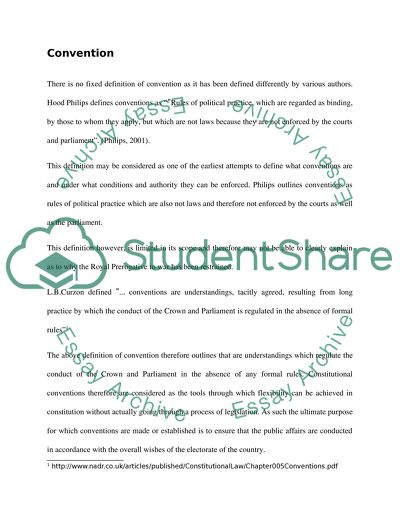Cite this document
(“Constitutional and adminstrative law - (Conventions) Essay”, n.d.)
Constitutional and adminstrative law - (Conventions) Essay. Retrieved from https://studentshare.org/law/1587030-constitutional-and-adminstrative-law-conventions
Constitutional and adminstrative law - (Conventions) Essay. Retrieved from https://studentshare.org/law/1587030-constitutional-and-adminstrative-law-conventions
(Constitutional and Adminstrative Law - (Conventions) Essay)
Constitutional and Adminstrative Law - (Conventions) Essay. https://studentshare.org/law/1587030-constitutional-and-adminstrative-law-conventions.
Constitutional and Adminstrative Law - (Conventions) Essay. https://studentshare.org/law/1587030-constitutional-and-adminstrative-law-conventions.
“Constitutional and Adminstrative Law - (Conventions) Essay”, n.d. https://studentshare.org/law/1587030-constitutional-and-adminstrative-law-conventions.


